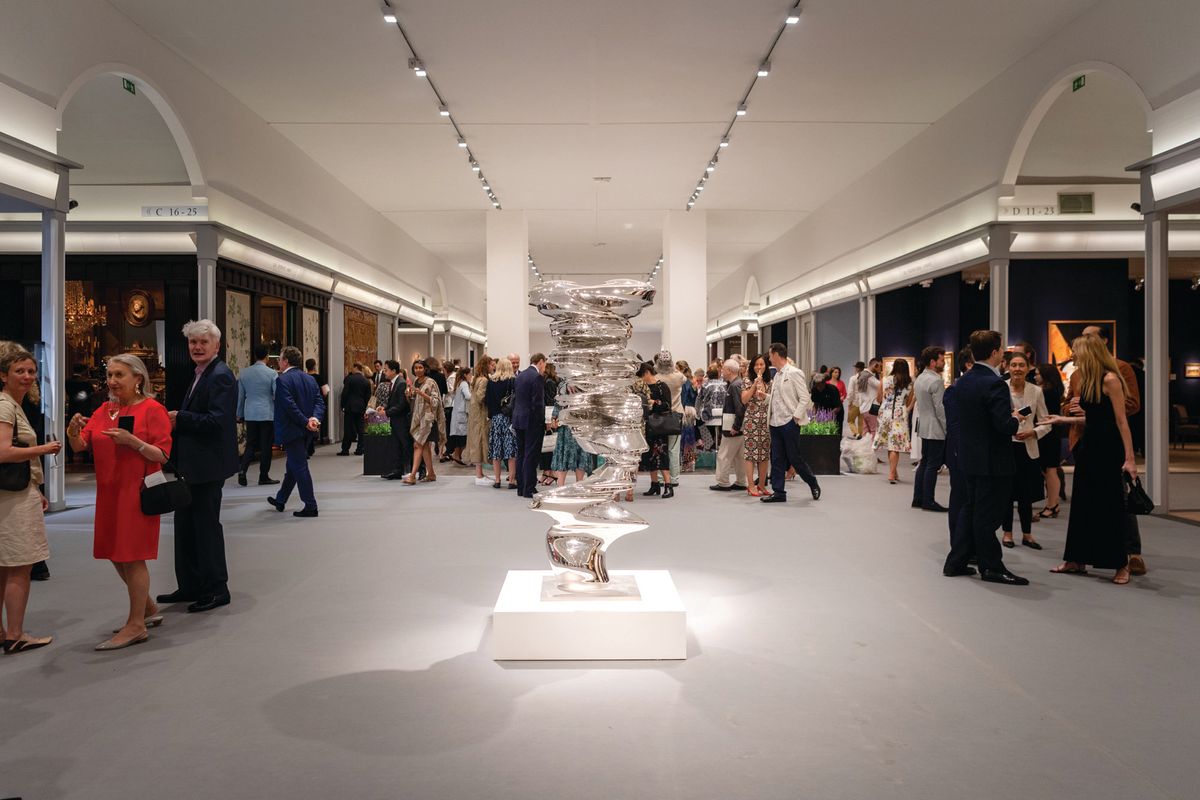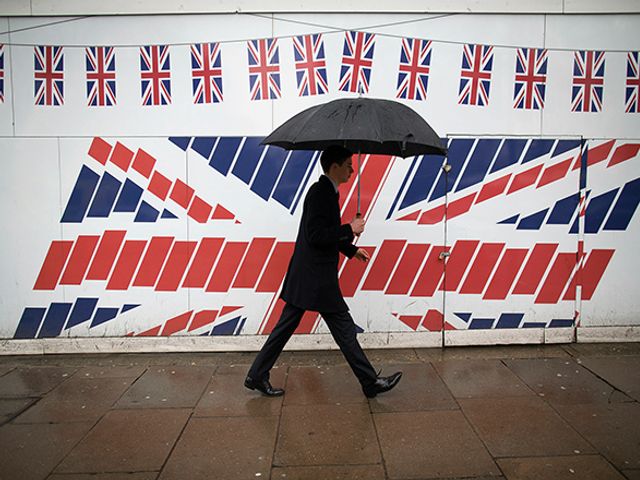Three recently cancelled fairs—London’s Masterpiece, Art & Antiques for Everyone in Birmingham and the summer edition of Art & Antiques Fair Olympia—are the latest casualties of a British art market in decline, a position underlined in a report published by the House of Lords on 17 January, which slammed the government’s “complacent” and “incoherent” approach to the arts.
Noting how culture scarcely featured in the British Prime Minister Rishi Sunak’s 2022 Autumn Statement, the report warns: “Unless senior figures across the government start taking the creative industries more seriously, the fundamentals that underpin the sector’s success will deteriorate and the UK’s competitiveness will decline. In some areas this process has already begun.”
Though it does not specifically mention Brexit, the report notes how the UK is falling behind both European and other global competitors in terms of the export of creative goods and services. Between 2019 and 2020, UK cultural goods exports plunged by 47%. The report says that this was largely attributable to the pandemic, though some other countries achieved growth in 2020 and, by 2021, many more had exceeded pre-pandemic levels. In 2020, the UK’s 5.3% share of global creative services exports placed it in the top five biggest exporters—but only just ahead of Japan (4.4%) and the Netherlands (4.3%), and significantly behind Germany’s 7% share.
UK art market: too little, too late?
Given the severity of the pandemic, it has been hard to disentangle how much of an effect Brexit has had, though many in the trade warn the economic fallout is now becoming clearer. According to Lucie Kitchener, Masterpiece’s chief executive, it was a “perfect storm” of the pandemic, spiralling exhibiting costs (a spike of more than 30% since 2019) and Brexit that contributed to the decision by the Swiss-based MCH Group to pull the fair, which last year saw a drop off in exhibitors from Europe and significant losses in revenue. “The pandemic has delayed the impact of Brexit and the UK’s ability to address it,” Kitchener says.
Paul Hewitt, the director general of the Society of London Art Dealers (SLAD), says the UK is “losing its lustre and its businesses”, in large part due to the regulatory burden of doing business in the UK post-Brexit. Rather than London, Hewitt thinks MCH is focusing on Hong Kong and Paris, where it operates Art Basel fairs, because “there is either less economic and political volatility, less regulatory burden and greater profitability” in those places.
According to a soon-to-be-published survey commissioned by SLAD and authored by the cultural economist Clare McAndrew, 81% of members are “extremely or moderately concerned” about the current “political and economic volatility” in the UK, and 75% are “very concerned or moderately concerned” about trying to transport art across borders. “That is a direct result of Brexit,” Hewitt says.
Burden of regulation
Meanwhile, 78% of dealers who responded to the survey “feel more concerned about the burden of regulation” now imposed on the market, with many specifically citing the impact of the UK’s anti-money laundering regulations, which were introduced in February 2020 and clarified last July.
The paradox, says Hewitt, is that British dealers welcome the regulations but feel that they are “a little heavy-handed in these early stages”. What is more, he adds: “International dealers perceive the UK as a less friendly place to do business because of the rules.”
Key ways that the government can help galleries, proposed by London Gallery Weekend co-founders Jeremy Epstein and Sarah Rustin, include incentivising UK-based buyers to acquire domestically, as currently “the 5% import rate is too attractive an alternative to the 20% incurred when buying in the UK”. They add that the government needs to champion “all aspects of the UK’s art ecosystem”, so as to encompass not just public institutions “but arts universities, commercial galleries and art fairs too”.
Improved tax relief support is one of the main recommendations in the House of Lords report, which warns that government definitions of research and development when it comes to tax relief are “narrow and restrictive”, and should be changed to include more creative businesses.
Some members of the trade think now is the time to take advantage of Brexit by getting rid of import VAT on art. Anthony Browne, the chairman of the British Art Market Federation, says the decision to continue with “the European-imposed” system of import VAT post-Brexit has “caused immense problems because you have two lots of hurdles to jump instead of one”.
Temporary admission currently allows tax on art imports to be deferred for two years, although, Browne says, the perception is still that the UK is a complicated place to do business. Removing import VAT would be a “shot in the arm for the UK as a global market hub”, he adds. And, despite the gloomy macro-economic climate, Browne thinks the British art market “can still compete very successfully”.
His case for optimism would appear valid. According to the House of Lords committee, the creative sector accounted for £115.9bn—almost 6% of the UK’s entire gross value added—in 2019, more than the aerospace, automotive and life sciences industries combined.



